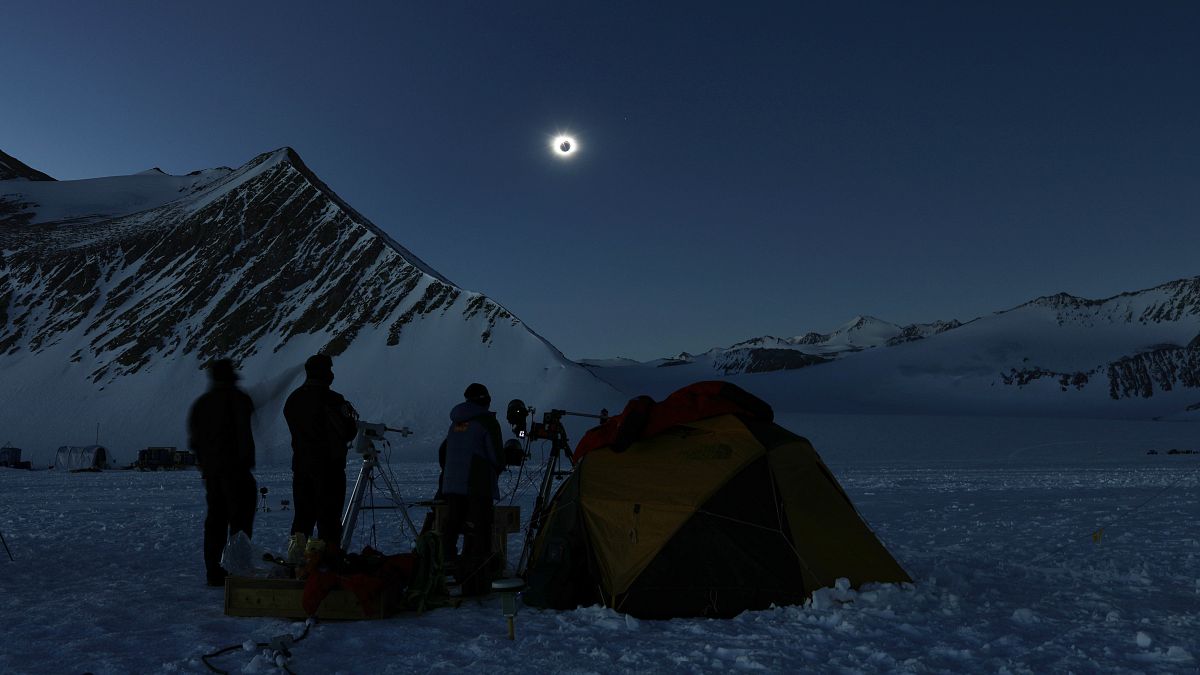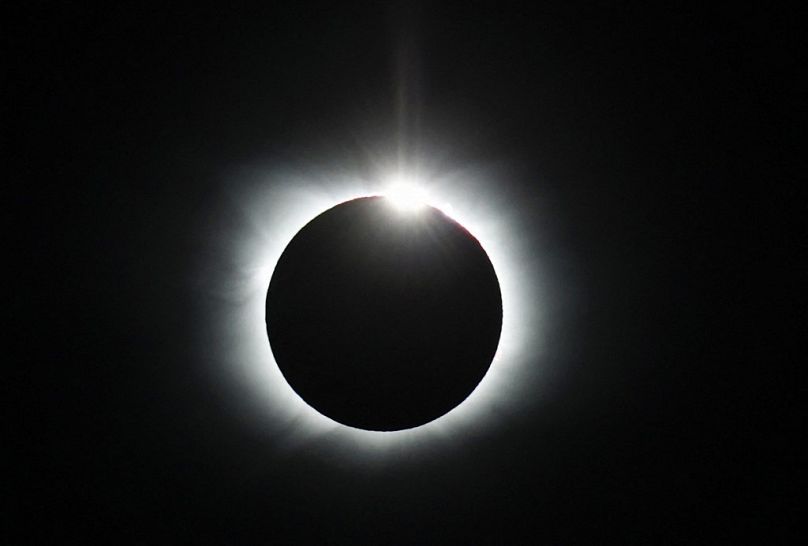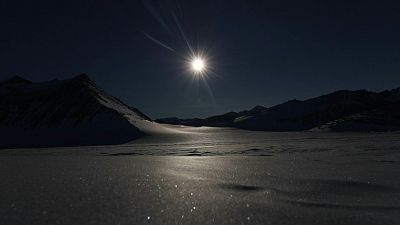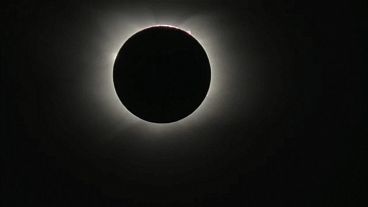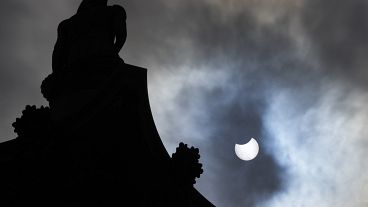The last total solar eclipse in Antarctica occurred on November 23, 2003, and the next one will not be until 2039.
A total solar eclipse plunged Antarctica into darkness early on Saturday.
"The visibility was excellent," said Raul Cordero of the University of Santiago de Chile (USACH), who was on site to witness the total solar eclipse at 0746 GMT, with the "ring of fire" phase lasting just over 40 seconds.
Solar eclipses occur when the Moon passes between the Sun and Earth, casting a striking shadow on Earth, blocking out the light of the sun.
For the eclipse to be total, the Sun, Moon, and Earth must be directly aligned.
The total solar eclipse was visible only on the frozen continent, currently in the height of its summer season, and was experienced by a small number of scientists, experts, and thrill-seekers who paid some $40,000 (€35,484) for the privilege.
Live-streamed by NASA from the Union Glacier camp, the eclipse began at 0700 GMT as the Moon began to move in front of the Sun, coming to an end at 0806 GMT.
The Union Glacier camp is situated about 1,000 kilometres north of the South Pole.
According to NASA, a partial eclipse was also visible across parts of the southern hemisphere, including parts of Saint Helena, Namibia, Lesotho, South Africa, Chile, New Zealand, and Australia.
The last total solar eclipse in Antarctica occurred on November 23, 2003, and the next one will not be until 2039.
